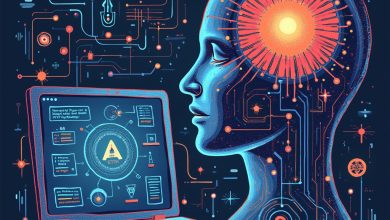The Role of AI in Self-Driving Cars

Introduction
Self-driving cars are no longer just a concept from science fiction. They are becoming a reality, thanks to rapid advancements in technology, particularly in artificial intelligence (AI). This article will explore how AI plays a crucial role in making self-driving cars safe, efficient, and reliable.
What Are Self-Driving Cars?
Self-driving cars, also known as autonomous vehicles, are equipped with technology that allows them to navigate and drive without human intervention. They utilize a combination of sensors, cameras, and AI algorithms to perceive their surroundings and make real-time decisions. The goal is to create vehicles that can operate safely in various environments, from busy city streets to open highways.
The Importance of AI in Autonomous Driving
At the heart of a self-driving car’s functionality is AI. Here are some key roles AI plays in this technology:
- Perception: AI helps the car understand its environment by processing data from sensors and cameras. This includes identifying other vehicles, pedestrians, traffic signals, and road conditions.
- Decision-Making: Once the car perceives its surroundings, AI algorithms analyze the data to make decisions. For instance, should the car stop at a red light or yield to a pedestrian? AI assesses various factors to ensure safety and efficiency.
- Path Planning: AI is responsible for determining the best route for the car to take. It considers real-time traffic data, the shortest distance, and any potential obstacles along the way.
- Learning and Adaptation: One of the most significant advantages of AI is its ability to learn from experience. Self-driving cars continuously gather data, which helps improve their performance over time. This means they get better at navigating complex situations and adapting to new environments.
How AI Enhances Safety
Safety is a top priority in the development of self-driving cars. AI contributes to safety in several ways:
- Real-Time Processing: AI can process vast amounts of data in real-time, allowing the car to react quickly to sudden changes in the environment, such as an unexpected pedestrian crossing the road.
- Reducing Human Error: Many accidents are caused by human mistakes, such as distracted driving or poor judgment. By relying on AI, self-driving cars can minimize these risks and potentially reduce the number of traffic accidents.
- Predicting Behaviors: AI can analyze the behavior of other road users and predict their actions. For example, it can anticipate when a car may change lanes or when a pedestrian is likely to cross the street, allowing for safer navigation.
The Challenges of Implementing AI in Self-Driving Cars
While AI has the potential to revolutionize transportation, there are challenges that developers face:
- Data Privacy: Self-driving cars collect vast amounts of data, raising concerns about privacy and how this information is used.
- Complex Environments: Urban settings with unpredictable elements, such as cyclists and pedestrians, present significant challenges for AI algorithms.
- Regulatory Hurdles: Governments are still working on creating regulations and standards for self-driving cars, which can slow down the deployment of this technology.
The Future of AI in Self-Driving Cars
The future of self-driving cars is promising, with continuous advancements in AI technology. As researchers and engineers overcome current challenges, we can expect to see:
- Improved Algorithms: Ongoing research will lead to more sophisticated AI algorithms that enhance decision-making and safety.
- Wider Adoption: As technology becomes more reliable and regulations are established, self-driving cars are likely to become a common sight on our roads.
- Integration with Smart Cities: Self-driving cars may work in tandem with smart city infrastructure, improving traffic flow and reducing congestion.
Conclusion
AI is the backbone of self-driving car technology, enabling vehicles to navigate safely and efficiently. While challenges remain, the potential benefits of AI in transportation are significant. As we look to the future, self-driving cars could transform our roads, making travel safer and more accessible for everyone.




